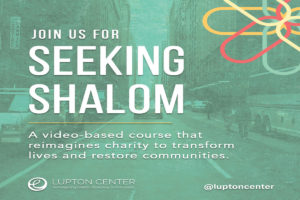At 35 years of age I became the part-time pastor of a small rural church in Virginia. Before this, the only job I’d held in a church was as a volunteer in the sound booth. I grew up in a Roman Catholic Church in a nice suburb of Boston as the youngest of six children. As the pastor of a rural Southern Baptist church I was as far away from my religious roots as possible. I knew almost nothing about pastoring a church, let alone, a Southern Baptist Church.
I was attending a Southern Baptist Seminary at the time. The Southern Baptists were going through the throes of significant theological challenges which led to the resurgence of the Conservatives being the dominant influential group. The Moderates and Liberals moved on to form their own denomination and seminary. Since I had not been raised in the Southern Baptist culture, I didn’t have a dog in this fight. I was just trying to understand the basics of theology and church practices. This motivated me to study to understand the theological issues being argued over. It did nothing, however, to help me understand traditional Baptist life and practices.
I learned about Church History, Old and New Testament Theology; about Evangelism and Discipleship, the Hebrew and Greek Languages and Preaching. But I didn’t learn anything about Pastoring a real-life Church. I wish I had learned this in Seminary.
I imagine most Southern Baptist pastors learn these things from having grown up in Southern Baptist Churches. They already know the culture and practices normally followed in church. They had the benefit of seeing and participating in the normal ways of “doing” church; but I didn’t have these experiences to guide me.
For example:
- Baptism – I didn’t know how to baptize someone; a normal expectation of pastors in “Baptist” churches. So, before the first baptism service I conducted my own research on how to do this and practiced by baptizing my wife about 10 times. I wish I had learned this in Seminary.
- Our Lord’s Supper – I had no idea how and when to officiate the Service of our Lord’s Supper. For example, on one occasion I got the order of presenting the elements backwards. My training came through the patient members of my first church pointing out how things should be done.
- Who’s Really In charge – These were fairly minor things compared to learning that Southern Baptist churches, at the time at least, didn’t participate in ministry alongside anyone not of the same color as us; or that there are church leaders who actually run the church instead of the pastor leading it; or that everything must be voted on by the congregation… and I mean everything! I struggled with these issues, and many others, because they didn’t make any Biblical sense to me. I wish I had learned about these things and what to do about them in Seminary.
- Church Family Dynamics – I wish I had learned about Family Systems Theory. In “Generation to Generation: Family Process in Church and Synagogue,” by Edwin H. Friedman, Friedman “applies the concepts of systemic family therapy (developed by Dr. Murray Bowen) to the emotional life of congregations and shows how the same understanding of family process that can aid clergy in their pastoral role also has important ramifications for negotiating congregational dynamics and functioning as an effective leader.” (Source: Good Reads)
I am thankful that someone shared this book with me early in my pastoral ministry. It helped me to understand my own family system (culture) I’d grown up in and the one I was now becoming a part of. Understanding the dynamics of family was a huge benefit. I wish I had learned this in Seminary.
- Community Outreach – I also wish I had learned about Asset Based Community Development and how it differs from the Needs Based model most churches, nonprofits and government agencies operate under. Two resources have been very helpful to me: (1) “When Helping Hurts;” and (2) “Toxic Charity.”
“When Helping Hurts” has changed the way thousands of church and ministry leaders approach poverty. Designed to equip you to begin effectively helping low-income people, “When Helping Hurts” articulates a biblical framework for poverty alleviation. Learn how to walk with the materially poor in humble relationships instead of just providing them temporary handouts. (Source: The Chalmers Center).
Loving and caring church people want to help those who are hurting but often do so out of a paternalistic stance. This often results in an “us/them” transactional framework for serving our neighbors instead of a “we” relationship-based model where we are serving one another in a healthier way. “Toxic Charity” shares the same message but from a pastor’s perspective. I wish I had learned this in Seminary.
Seminary, for me at least, was crucial. I needed to learn Theology for myself and for those I would be leading. It was good that I didn’t know very much theology since there wasn’t much I needed to unlearn.
This also means that I didn’t need to learn Baptist traditions as pseudo-theology. I just needed and wanted to learn pure Biblical teachings. This too was a struggle. I attended seminary to learn what the Bible had to say about the issues the church was facing; not the doctrine of man about these issues. For example, “What about women in ministry?” This is less of an issue today but still an issue. What does the Bible say? I wish I had learned this in Seminary.
My hope is that you will take a look at the books I’ve shared. May they challenge and equip you to become a wiser and better leader of God’s people revealing God’s Kingdom on earth.




